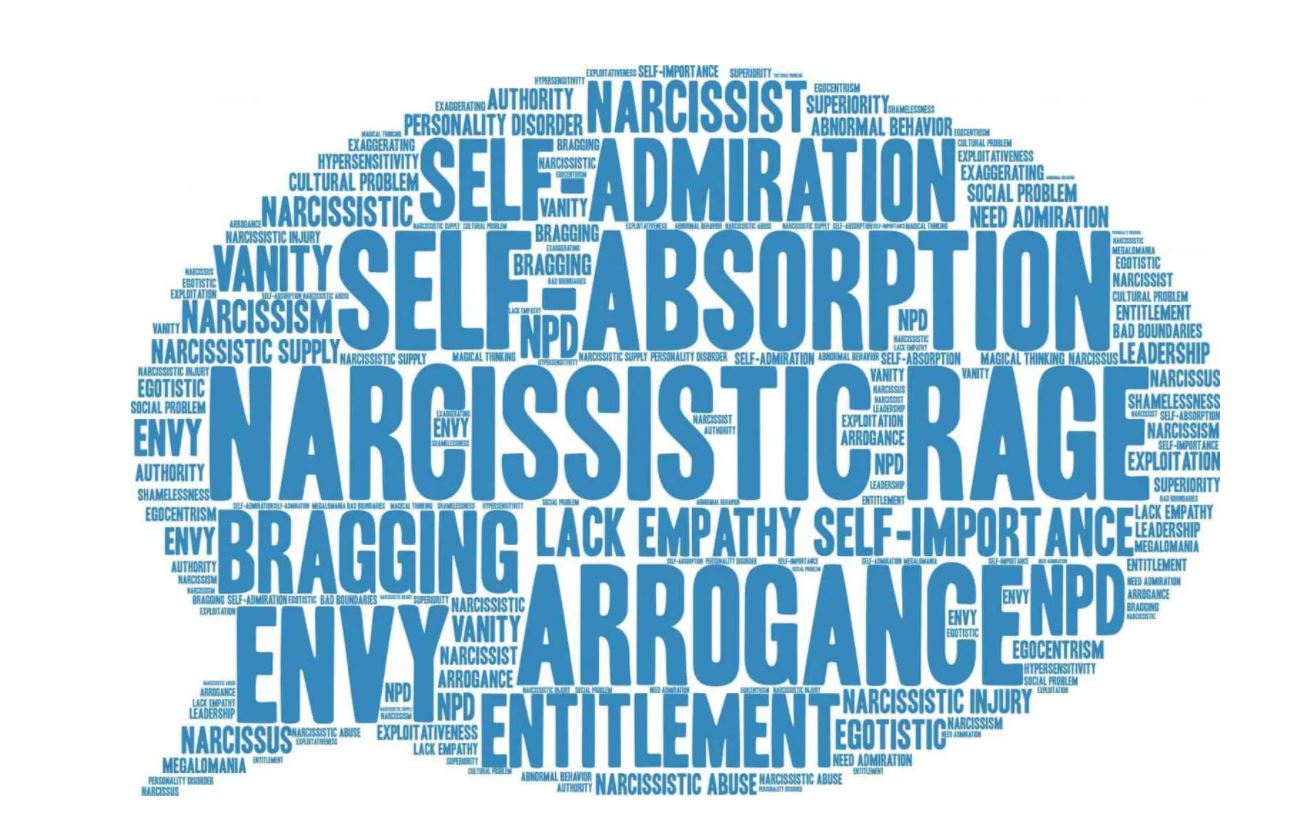It’s so easy to point the finger at others and to judge their sense of entitlement, but recently I did some self-reflection and found I am just as guilty of feeling entitled as the next person.
My Sense Of Entitlement And Frustrations
As a career professional, I have high expectations. I expect my team to work as hard as I do and I expect certain things in my life. When I get up in the morning, I expect the water to work when I turn on the faucet and for hot water to be there when I take a shower.
My Car Better Start
If I get in my car and it doesn’t start – I get angry. I hate when things don’t work or when things break. When I can’t figure out what’s wrong with my vehicle, I get stressed and agitated – just ask my wife.
My Phone Service Should Be Perfect
When I make a phone call and the service drops – I’m frustrated. In other words, I expect everything to be perfect in my life or my mood changes.
At what point in my life did I become this way? I don’t have any idea how my phone transmits my voice to another phone but if this modern day miracle isn’t perfect, I’m upset.
In the early days, people rode horses to get from one place to another. Now I drive in a vehicle that goes much faster, controls the climate within the vehicle, and shields me from rain. Again, I could not build a vehicle from the ground up but I expect it to work and be available to me.
I mean, I work everyday so I deserve these things right?
Our Reality Is Most People’s Dreams
In this post I want you to have an honest reflection with me. By being able to disconnect from our inherent entitlements, we can more fully appreciate what we have, and hopefully, gain a sense of contentment rather than entitlement.
Contentment is the secret ingredient for controlling our finances and living within our means.
From my time in law enforcement, I have seen many different people at very difficult points in their lives. On one end, I have seen people sweep their dirt floors with a smile on their face and contentment in their hearts.
On the other end of the spectrum, I have seen someone in a mansion with marble floors curse out a family member because they thought they were stealing money from them.
Some of the richest people in this world are the most unhappy.
Perhaps you have experienced similar circumstances. I can honestly say that throughout my career, I have been to more suicides that occurred in “rich neighborhoods” than I ever did in “poor neighborhoods.” For some reason, the rich always seems less content than the materially poor.
For most of us – especially if you’re able to read these words on an electronic device, we are much more wealthy than any of our ancestors and the majority of the people in this world.
Focusing On Contentment Rather Than Entitlement

Recently I have been making a conscious effort to focus on all my blessings rather than cursing situations or my lack of material things. This has proven to be easier said than done.
I have found that by changing my focus on what is right in my life, even when there are negative things happening, I am able to reduce my stress and frustration levels.
In preparation for this post, I researched more about our sense of entitlement and where it comes from.
What Does It Mean To Have A Sense Of Entitlement?
In simple terms, one aspect of entitlement means that someone believes they deserve something without earning it or doing any work towards it. A simple Google search will immediately point the finger at the “younger generation.”
Some believe parenting methods are much different these days and younger individuals don’t appreciate the work it takes to obtain things – the way older generations do. Whatever the case may be, more and more people are feeling entitled and showing behaviors that can be hard to change or even realize are happening.
That last line was pointed directly at me.
The World Revolves Around Me

Regardless of where you’re at, you’re going to run into some entitled people, possibly yourself, who think the world revolves around them. This narcissistic trait can be extremely aggravating and it can actually ruin relationships – and your finances!
It’s especially heartbreaking if the people you care about have this personality disorder, (yes it is a disorder) because there might come a time when you have to cut them off.
Since entitlement can be quite serious, it’s important to know as much about it as you can, including where it comes from and how social psychology goes along with it. I have put together this article to help you understand the ins and outs of a sense of entitlement.
Hopefully, you will gain a few tips on how to spot it and how to help yourself or others improve this behavior.
What Is An Entitled Person?
Entitled individuals think they should have everything given to them – as if positive circumstances or things are a birthright.
They often have unreasonable expectations (me) and tend to get upset when things don’t go their way (ugh – me again). This type of feeling is often a result of things like deep-seated insecurity, but it could be so much more. It’s usually pretty easy to spot someone who has a sense of entitlement, but it can be extremely hard to actually help them change these behaviors.
This is even more true when the person is you, so knowing where the entitlement comes from can be the first step towards improvement.
Examples Of Entitlement
Besides knowing that someone who is entitled thinks they should get whatever they want without having to work for it, it’s important to understand real-world scenarios of entitlement.
We all know the other guys or girls on the squad that have the lowest recap, the fewest reports written, and the ones that hide all shift. But when your squad is recognized for some type of achievement, they’re always there to be part of the pictures and accolades.
These are the slugs that refuse to put in the work but expect praise when the team excels, despite them.
A False Sense Of Entitlement?

Some people refer to this as a “false sense of entitlement.” This often results from parents that give their children everything they want without making them earn it.
When this happens, the child grows up thinking that everyone around them should give them what they want, just like their parents did. These children have been conditioned to expect results without work. If it isn’t, they tend to get upset and even have serious meltdowns.
As parents, it’s important to say “no” and refrain from always giving in.
With my children, I don’t give them an allowance because this sounds too much like welfare. My kids earn money by working for commission. This helps tie in the work for results type of mindset.
The Opposite Of Entitlement
The opposite of entitlement is humility and a sense of contentment. While it’s not always the case, in my experience I have seen that people who grew up poor tend to be less entitled than those who grew up in wealthy families.
In general, individuals who struggled through life tend to realize how hard it is to make ends meet and how hard they need to work to stay afloat. As a result, they don’t expect things to just come to them and they are often surprised and extremely thankful when they get help.
Now before you send me hate mail, I have also witnessed my fair share of entitled lower-income people as well.
How Do You Deal With Entitlement?
Alright, now that we all feel a little embarrassed – let’s examine how we can change our entitlement behaviors and those of others. Since it can be aggravating to deal with someone showing these symptoms, it’s essential to know what to do to try to salvage your relationships.
With that being the case, here are 5 things you can do in order to work through it. Keep in mind, these might not work for everyone and there’s a chance you’ll just have to walk away.
For this next section, I’m definitely putting my “dad hat” on.
If you’re dealing with your own kids – it will be rough but there’s a good chance you can change, or strongly influence their behaviors if you stick with it.
If you’re dealing with an adult – good luck.
1. Identify The Behavior

The first thing you can do is point out the entitled behavior. Letting someone get away with it is going to make them feel like they can do whatever they want and easily take advantage of you. It might be a hard conversation, but letting them know when they are showing these behaviors and that you don’t appreciate them may help salvage the relationship (and it might not).
If they ignore you or don’t seem to care, you might need to walk away. If they truly want to change, they’ll take what you say into consideration and try and stop the behavior.
2. Help Change Their Wording
You could also talk to them about changing their words when they are with you. Many people will use a lot of “I” statements, or make everything about them. By helping them change their words, you can help them change the way they think.
It might not seem like a big deal, but just changing normal word usage can help change a mindset. Even if they don’t change how they talk all the time, there’s a chance they’ll try and watch what they say around you and show less entitled behaviors.
3. Set Limits
Make sure you’re setting limits around those you know with a sense of entitlement. If you have no limits, they’re going to think they can do anything and convince you to give in to anything they want. This is the last thing you want to do because they’ll keep expecting it if you keep allowing it.
In other words, you’re enabling them.
Be firm with your “no’s” and hold strong. Giving in only hurts them in the long run. You might feel like you’re helping and making them happy, but you’re actually sabotaging your relationship.
4. Treat Everyone Equally
Regardless of where you’re at or what situation you’re in, treat everyone equally. Just because someone is showing negative emotions because they aren’t getting what they want, don’t show them any special treatment.
To help show them that this behavior isn’t acceptable, you want to treat them the same exact way as you do everyone else. You also want to show them that it’s not always someone else’s fault.
It might be hard to deal with, but they’ll eventually realize that you aren’t going to give in, and you aren’t going to let them get away with any of the behaviors associated with their feelings of entitlement.
5. Don’t Push Yourself too Hard
No matter how you try and deal with an entitled person, there’s only so much you can do before you reach your breaking point. With that said, don’t overextend your sanity or push yourself too hard. You also want to make sure you don’t blame yourself if they choose not to change their behaviors.
As stated earlier, you can’t force someone to change if they don’t want to. You can only offer honest, loving guidance, and how their behavior makes you feel. If they don’t want to hear it, then they aren’t going to listen. There’s no point exhausting yourself when there isn’t any hope.
How Do You Change Entitled Behavior?

Besides dealing with it, it’s important to also know how to change these behaviors. This mostly refers to helping those around you change their behaviors, but it can also work for you if you’re finding that you are the one with a sense of entitlement.
Remember, as stated above, these might not work and you might need to take more extreme measures. Regardless of the situation, it’s important to do what you can in order to facilitate change.
1. Set Expectations
The first thing you can do to help stop these behaviors from those you’re close with is to set expectations. Not only should they know exactly what you expect, but they’ll be able to realize that they can’t get away with those behaviors.
It might be hard to set these guidelines, but it’s essential to let them know you’re serious. It may take some time for them to listen to and respect your guidelines. Keep in mind, depending on how stubborn they are, there’s a chance they may never respect your guidelines.
2. Don’t Fight
You also want to try and avoid any fights. If you need to, just walk away if they’re arguing or yelling. Most people who don’t get what they want tend to have meltdowns and nasty behavior, so there usually isn’t any reasoning with them.
With that being the case, you can argue until you’re blue in the face. As you probably know from prior experience, this doesn’t help anyone and you don’t want to waste your time or energy on a losing battle.
Give them time to calm down, then try and go back to the situation when cooler heads can prevail.
3. Say No
This can be the hardest obstacle for some people, but you’ll need to learn to say “no.” This is the case even if, in the past, you’ve given them anything they’ve ever wanted.
It doesn’t matter if the person is your spouse, your child or a friend, telling them “no” will let them know that you’re done with their behavior, and you won’t allow it anymore. There’s a good chance they’ll become extremely upset and nasty, but you want to stand your ground and refuse to give in, regardless of what they try and do.
4. Don’t Give In
No matter what, don’t give in. Even giving in one time can completely erase any progress you’ve made and bring you back to square one. Keep in mind, many people will give in and say, “just this one time” but that one time tends to turn into two, three, and four times.
Since you’re trying to stop these behaviors, doing this is going to put you right back where you started. It may be hard and it might make you feel upset or heartbroken, but you’ll need to fight through these feelings and continue to stand your ground – for their sake.
5. Take Some Time Away
If nothing else works to help stop the entitled behaviors, you might just need to take some time away. Not only will this give you time to evaluate what you want from the relationship, and where you should go from here, but it could help show them what will happen if they don’t change or stop.
Depending on the person’s personality, this might not affect them. If that’s the case, you’ll at least be able to figure out how you feel and be able to consider if the relationship is worth it.
Dealing With Your Own Entitlement

Once you realize you have a sense of entitlement, you’ll probably want to stop these feelings. It might seem like the entitlement has been working until now, but there’s going to come a time when people start avoiding you and deciding that they just can’t deal with it.
In order to save your relationships and give yourself more favorable living conditions, it’s important to find ways to stop the behavior. These are just a few things you can do on your own without professional therapy.
1. Consider The Perspective Of Others
The first thing you can do is consider other people’s perspectives. It’s important to realize how they feel and see what they see when you act this way. If it helps, you can try using a journal to write down times when you’ve realized you’ve been showing entitled behaviors. You can then look back over them and work on the behaviors you see.
2. Encourage And Promote Others
Another step you can take is to encourage and promote others. Things don’t always have to be a competition and it’s important to show other people that you recognize their accomplishments.
Helping others succeed can bring you a great sense of happiness and satisfaction.
3. Make Your Own Way
Even if you’ve been given everything, it’s important to make your own way to get over feeling entitled. You need to see how it feels to work for what you need instead of just having things handed to you. You also need to understand that you will never feel fulfilled without hard work.
4. Change Your Expectations
One of the biggest things you can do is change your expectations. Instead of always expecting everything, you can try to burn it into your mind that you’re not going to get something if you don’t work for it. This is one of the hardest things to do but it’s an important step. If need be, ask someone close to you to help you and encourage you during this phase.
5. Try Therapy
One other thing you can do is find a therapist that can help you take a look at your mental health. Many times, entitlement is a result of underlying issues, so it’s important to get to the root of the problem.
If you try and change your behavior without taking care of the underlying problem, you’re going to have a higher chance of going right back to your entitled ways. It might take some time, but they’ll help you work through it.
Entitled People Can Be Toxic

These traits of those with a sense of entitlement can be contageous and toxic. Avoid this behavior and from letting your children adopt these personalities.
1. Believing They’re Better than Others
The first sign that someone is entitled is they believe they are better than everyone else. It doesn’t matter what the situation is or what’s going on, they will always believe they are better and know more than those around them. They try and turn things into a competition and tend to continuously tell everyone how good they are.
2. Double Standards
Another big sign is they have double standards. This means they expect different results or rewards for themselves compared to others in the same situation. For example, if they were working as a team at work, they would expect extra compensation or rewards for doing the same exact work as their partner.
Basically, they think they should be treated better than others.
3. Not Playing Fairly
People who are entitled also tend to play unfairly (cheat). In addition to believing one deserves preferences over others, they also expect special treatment. Often, they’ll do things that aren’t allowed or right to get one up on the competition.
In some situations, cheating might not be a big deal, but in other situations, it can lead to serious or legal consequences.
4. Manipulating/Controlling
Manipulating and controlling behaviors can be a huge clue that someone has a sense of entitlement. They will do what they can to make sure they get what they want and not care about who they hurt in the process.
Many times, they don’t even consider how the other person feels or what happens when they do these things. It’s a good way to ruin relationships, and those with entitlement issues don’t necessarily care.
5. Constantly Attention Seeking
There’s also the red flag of constant attention-seeking. These people always want to be the center of attention, regardless of the situation. This can be something simple like work, or it can be more important events like funerals or weddings. They’ll do whatever they need to ensure they always come first and often end up embarrassing those around them.
6. Regular Meltdowns/Nasty Attitude
One last sign that someone has a sense of entitlement is that they have regular meltdowns or nasty attitudes when they don’t get their way or they have unmet expectations.
When this happens, a lot of people won’t care where they are or how they look to others. Besides being embarrassing, this can give them and those associated with them a bad name. As a result, many people will give in just to try and avoid any of these behaviors from happening.
Signs You’re Entitled

Before wrapping up, there is one other thing to discuss. How do you spot entitled behavior in yourself?
Entitlement can easily push people away. With that being said, here are 6 signs that you are the one who has feelings of entitlement.
1. Unrealistic Demands
One of the biggest signs you are the one with the entitlement issue is when you realize you have unrealistic demands of others. This includes expecting others to be perfect or do things you wouldn’t do yourself.
2. Self-Pity
Another sign is that you feel a lot of self-pity when things don’t go your way. This is especially true when it’s a situation that’s extremely simple and shouldn’t really matter. Often times, people who do this tend to ignore situations other people are in and sometimes will even try to one-up them regardless of what is going on.
Depending on the situation, this can completely destroy relationships and result in you losing friends.
3. Doing Whatever It Takes (at all cost)
I’m not talking about hard work and determination, I’m talking about child like behavior.
If you notice you do whatever it takes to get what you want through negative actions, you may be entitled. Not only will you do whatever it takes, but there’s a high chance you don’t care who you hurt while trying to achieve your mission.
You might not realize you’re doing this, but it can really hurt people’s feelings and make them feel like you don’t care about them or their friendship.
4. Punish People With Your Behavior
Punishing people with your behavior is a telltale sign you may be entitled. Some of the punishments could be: the silent treatment, making snide remarks, or just being plain out rude. Sometimes, people don’t even know why you’re treating them this way and it can really make them feel horrible.
5. Others Are Always Competition
If you find yourself viewing everyone else as threats and competition, it’s another sign that you’re entitled. You should feel a sense of happiness and joy for your friend’s or family’s accomplishments instead of always trying to be better than them.
There’s a chance you don’t realize you’re doing this, or maybe you do but don’t necessarily care. This is especially hurtful for those close to you that just want to share their joy and accomplishments with you.
6. Everyone Else Comes Second
One last sign you have a sense of entitlement is when you put everyone else second. You don’t really care about their feelings or what happens to them as long as you come out on top and end up being the center of attention.
The Result? You may frequently lose relationships and people avoid you because they don’t want to feel unappreciated.
The Main Takeaway
Hopefully, after reading this article, you’ll be able to improve your living conditions and be happy with the relationships you have. As a parent, ensure you are not raising entitled children. Contentment is powerful and necessary to live life to the fullest.
Identify entitled behavior in those closest to you as well as yourself. Teach and practice humility by focusing on all the gifts and blessings you have. Lead by example and treat others with love and respect.
In a worst-case example, you may have to practice “tough love” and walk away from bad behavior. Avoid empowering bad behavior and help others by modeling the behavior you want to see.
This post originally appeared on Arrest Your Debt.


